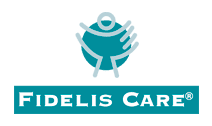In this blog from 1Fibroid in New York, we explain if fibroids cause kidney problems.
What Are Uterine Fibroids?
Uterine fibroids, also known as leiomyomas or myomas, are noncancerous growths that occur in the uterus during a woman’s reproductive years. It is not uncommon for women to have uterine fibroids during their lifetimes. However, due to the fact that these fibroids often do not cause any symptoms, many women may not be aware that they have them.
For those who do experience symptoms, the severity of them can vary depending on the location, size, and amount of fibroids present. Women who are experiencing symptoms of uterine fibroids may experience heavy menstrual bleeding, periods that last longer than one week, pelvic pressure or pain, frequent urination, difficulty emptying the bladder, constipation, and backache or leg pains.
If you experience persistent pelvic pain, abnormally heavy, long or uncomfortable periods, bleeding or spotting between periods, difficulty urinating, or an unexplained decrease in red blood cell count (anemia), it is important to visit your consult your doctor and discuss your treatment options.
Can Fibroids Cause Kidney Problems?
The impact and symptoms of fibroids depends on the woman affected, as well as the size and location of the fibroids. Some women do not experience symptoms of their fibroids at all. It is possible for uterine fibroids to affect the kidneys in some patients.
Because fibroids are growths made up of muscle tissue found in the uterus, they can grow to a size large enough to press down on the ureter. The ureter is the tube that connects the bladder and the kidney, and when this happens, hydronephrosis can develop.
Hydronephrosis occurs when urine is unable to drain away from the kidneys, causing it to collect in the organ. As a result, one or both kidneys become swollen. Although a fibroids pressing down on the ureter can cause hydronephrosis, other possible causes can include kidney stones, infections, an enlarged prostate, blood clots, or a tumor. Those affected might experience difficulty while urinating, as well as pain in the side, abdomen, or groin area.
Symptoms of hydronephrosis include painful urination, an increased urge to urinate, flank and back pain, and in more severe cases, permanent kidney damage. If you suspect your kidneys may be at risk due to your fibroids, it is essential to see a doctor right away. Urine and blood tests can indicate if your kidneys are functioning normally or are at risk.
What Are My Treatment Options at 1Fibroid?
If you are concerned about your fibroid symptoms, it may be time to consider treatment options. At 1Fibroid in New York, we are glad to provide support and the following treatment methods:
- Non-Invasive Treatment Options. Depending on your situation, you may be recommended nonsteroidal anti-inflammatory drugs, tranexamic acid, iron supplements, or hormone therapy.
- UFE. Uterine Fibroid Embolization (also known as Uterine Artery Embolization) is an outpatient procedure that has been clinically proven to reduce the uncomfortable symptoms of fibroids, such as pelvic pain, pressure, heavy and prolonged bleeding, and frequent urination. The procedure itself only takes around an hour.
- Surgical Treatment Options. If you are curious about a hysterectomy or myomectomy, speak to your expert at 1Fibroid.
If you are living with uterine fibroids and curious about your nonsurgical alternatives to fibroid treatment, consider 1Fibroid. 1Fibroid is based in New York, with locations in both Manhattan and Queens. We are committed to women’s care and offer non-invasive options such as medication, hormone therapy, and UFE procedures. If you’re ready to live life without the symptoms of fibroids, call us today at 212-991-9991.












